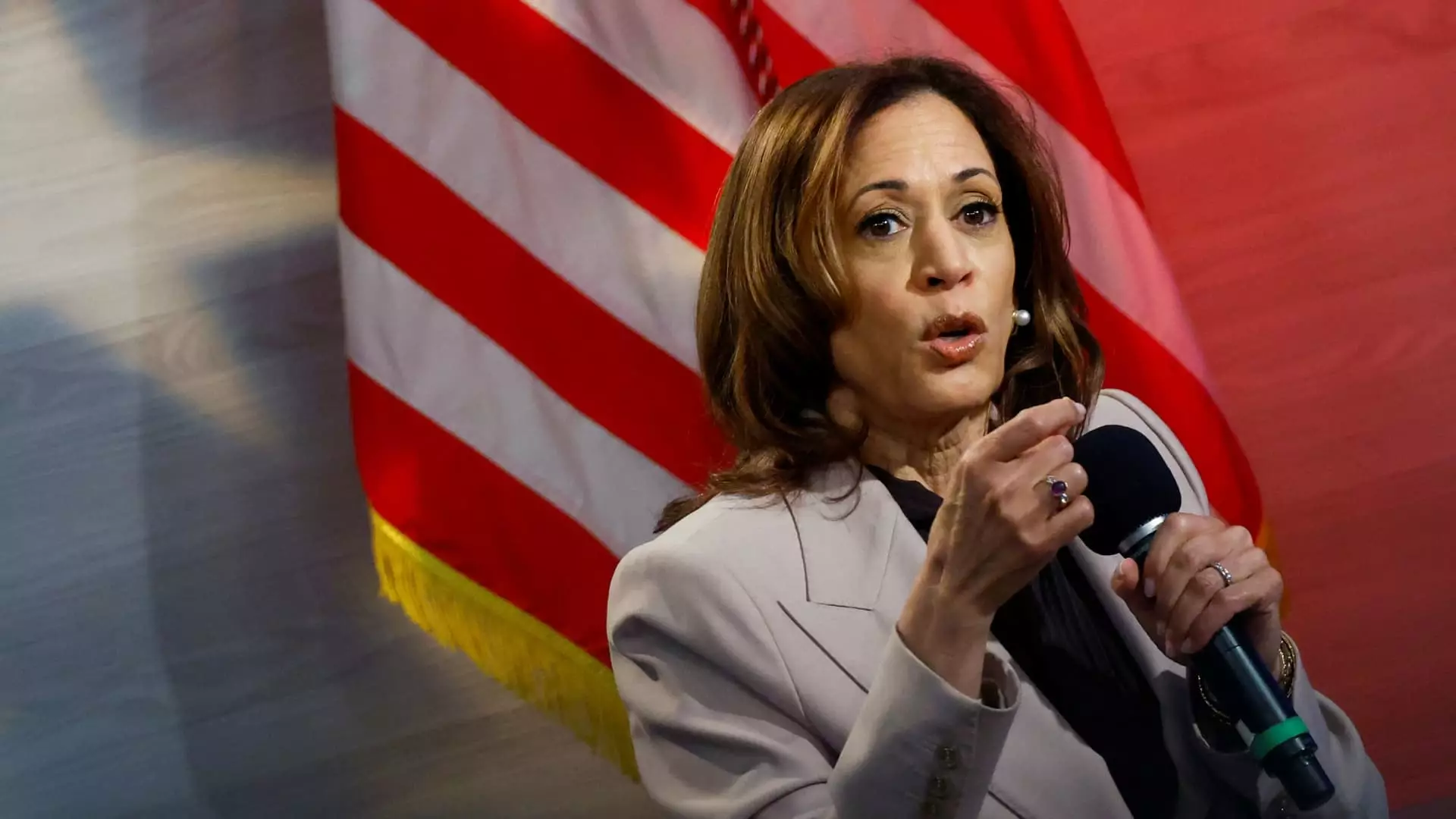In the current political landscape, the significance of voting demographics cannot be overstated. For the Democratic Party, engaging young Black men has emerged as a crucial focus area, particularly as recent polling indicates a noteworthy shift in this group’s allegiances. The candidacy of Kamala Harris, the Vice President and Democratic presidential hopeful, brings renewed attention to this pivotal voting bloc. However, the challenge of connecting with these voters requires a nuanced approach that goes beyond mere assumptions of loyalty based on race.
Recent polling data, such as the NAACP’s revelation that more than one-quarter of Black men under 50 favor former President Donald Trump, has sent ripples of concern throughout the Democratic Party. Virtually absent from the public conversation is the acknowledgment that young Black men are increasingly seeking candidates who genuinely represent their economic interests rather than assuming their votes based on racial identity. Harris’s remarks reflect a necessary departure from the complacency often observed in political campaigns, underscoring the importance of actively courting this demographic.
Central to Harris’s appeal to young Black men is her proposed economic strategy, which prioritizes creating pathways for entrepreneurship and reducing financial barriers. She asserts the importance of increasing access to capital through community banks, aimed at empowering local entrepreneurs who often encounter steep obstacles in securing funding. Harris highlights that many individuals possess innovative ideas and a strong work ethic, but lack the necessary financial support to transform aspirations into realities.
By emphasizing initiatives such as a $50,000 small business tax deduction and the impact of erasing medical debt from credit scores, her proposals aim to directly address historic economic inequities that have long hampered the progress of Black communities. It is a call to action for young Black men who face hurdles in their pursuit of entrepreneurial success and financial independence. This tailored economic argument is critical as it acknowledges the systemic barriers that have hindered their growth while also promoting a robust vision for shared prosperity.
Harris’s efforts are not solely about gaining traction among a specific voter demographic; they also reflect a broader imperative for the Democratic Party to regain trust and support from Black voters. With a staggering 92% of Black voters supporting Joe Biden in the 2020 election, the idea of losing a substantial portion of this base raises alarm bells. The party’s ideology and initiatives must resonate authentically with voters’ lived experiences. The current economic climate, characterized by ongoing inflation and rising costs of living, plays a critical role in shaping voter sentiment.
As Harris shapes her political narrative around economic relief, she must contend with the dual challenge of addressing historical grievances while also providing visionary solutions. This requires not just a commitment to policy change, but also a robust framing of the challenges faced by young Black men in today’s economy.
Adding to the stakes of this election are the divisive and often racially charged remarks from political opponents. Trump’s recent comments aimed at Harris, questioning her identity and referring to her as a “DEI hire,” highlight a continuation of a troubling narrative in political discourse. Such rhetoric not only undermines the credibility of a candidate but also alienates a significant portion of the electorate. Harris’s response to these jabs emphasizes the need for political leaders to engage in respectful and constructive dialogue rather than resorting to derogatory comments.
Fostering relationships built on trust and respect is fundamental to winning over skeptical voters. Harris’s commitment to authentic engagement is essential not only for her campaign but also for the broader mission of the Democratic Party to unify and empower diverse communities. Recognizing the individuality of each voter, particularly young Black men, means listening to their concerns, addressing their aspirations, and providing tangible solutions that resonate with their realities.
In light of current economic challenges and shifting political allegiances, the approach taken by Kamala Harris in courting young Black men reveals a potential path forward for the Democratic Party. By emphasizing economic empowerment and actively addressing the distinct needs of this demographic, Harris could reshape perceptions and ultimately bolster voter support. The stakes are high, but with a strategy that prioritizes genuine outreach and systemic change, there exists an opportunity for meaningful progress in bridging political divides and enhancing economic opportunities for all.


Leave a Reply